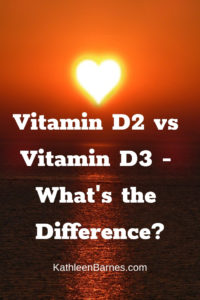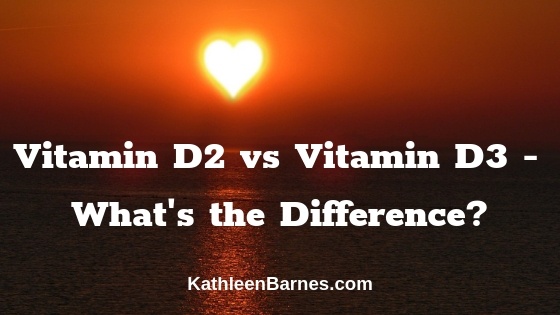 In a word, vitamin D3 is the one you want. Vitamin D2 is basically a waste of your time and money.
In a word, vitamin D3 is the one you want. Vitamin D2 is basically a waste of your time and money.
Here’s what we know:
- Vitamin D is not actually a vitamin. It’s a fat-soluble hormone.
- Vitamin D has a multitude of effects in the human body, including absorbing calcium from the gut and the bloodstream. It also has immune system enhancing effects, has an impact on brain chemistry, it’s a cancer preventive, lengthens lifespan and so much more.
- It’s the only nutrient the human body can manufacture through the absorption of sunlight through the skin.
- It’s also available in very small amounts in fatty fish, egg yolks, liver, fish liver oils, certain types of mushrooms, yeast and fortified foods like cereals, juices and milk.
And so…
- We all need vitamin D on a year-round basis.
- In winter, especially at Northern latitudes, our bodies don’t get enough sun exposure to manufacture the D we need.
- The darker your skin, the more time in the sun you need.
- For most of us, supplements are necessary to keep D levels when they should be.
Now comes the eternal question: What kind of vitamin D should I take?
There are two types of vitamin D supplements on the market: Vitamin D2 (ergocalciferol) and D3 (cholecalciferol). In the simplest of terms, D2 comes from plants and D3 comes from animals. Both are metabolized by the liver to form calciferol, but at widely varying rates.
D2 and D3 are far from equal when it comes to effectiveness. Recent research makes it clear that D3 is absorbable in your bloodstream and usable by your body and D2 is far less effective. One study shows that, for a group of older women, a single dose of D3 raised blood levels of twice as much as the same amount of D2.
A 2017 study published in the American Journal of Clinical Nutrition found that middle aged women who took D3 supplements increased their blood levels of D by about 50%, when those who took D2 had only minimal gains.
Some research also suggests that D2 is more likely to degrade with storage, exposure to sunlight and high temperatures.
If you’re a vegetarian, there are some animal-free sources of D3 supplements. Most D3 supplements are made from lanolin in sheep’s wool, so it depends on your vegetarian proclivities whether that qualifies as permissible or not. Certainly these won’t work if you are vegan.
Some brands purport to be vegan, including some made by Doctor’s Best, Garden of Life. Life Extension and Country Life. Do your homework and be sure.
That makes it all a slam dunk: D3 is the answer.








Great easy to understand explanation of Vits D3 and D2. ,Thanks! Eunice
Thank. Just what I needed. I’ll show this to my pharmacist right away.
🙂